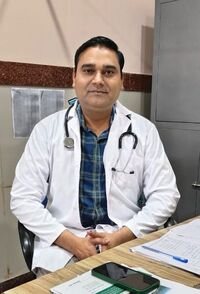
Department Of Kayachikitsa
- Kaya Chikitsa Department Covers a wide range of diseases and disorder of Affecting various system and organs of body Such as-
- 1 Kasa and Tamak Swasa (Respiratory system)
- 2. Atisara (Digestive System)
- 3. Vata vyadhis (Nervous system)
- 4. Hridya rogas (CVS)
- 5. Mutra Rogas (Urinary system)
- 6. Shukra rogas (Reproductive system)
- 7. Kushtha Nasa and kantha (Skin)
- 8. Netra roga (Eye Ears Nose)
- 9. Mouth (Mukha roga)
- Kaya Chikitsa also deal with chronic conditions with Super- specialty units.
- 10. Madhumeha evam Medoroga chikitsa ( Diabetics and Metabolic)
- 11. Sandhi- Asthigat vyadhi (Arthritis and musculo skeleta)
- 12. Rasayna and Vajikarana (Ayurveda Nephrology)
- 13. Tvak evam Anurjata Chikitsa (Skin and Allergy)
- 14. Stholya (Obesity)
- 15. Manas Vyadhi (Vishada, Chittodvega. Anidra Manoavsadh, Kaphaj
Apasmara)
Kaya Chikitsa is the one of the eight branches of Ayurveda which deals with the multi systemic illness of the adults. It deals with therapeutic approach to the disease either through Shoshanna(purification), Shamana (pacification) and Satwawajaya (Counseling). These applications are done through medications, behavioural, psychological & Life style management. Pharmacological intervention is through various forms of medicines like vati (tablets), kashaya (decoctions), churna (powders), bhasma, asava, arista, ghruta, guggulus ect. Strength of the system is providing efficient, cost effective, personalized medicine with high safety margins. Department of Kayachikitsa for Undergraduate was individualized in 1963, since then the department is growing and working for the upliftment of Kayachikitsa, the first speciality of Ayurveda which successfully flourished inspite of various adversaries for centuries.
- Policy:
Uniform Care of Patients:
- Vision
- To excel in education and Patient Care, So as to benefit human kind. To be a centre of global excellence in the field of Kayachikitsa education by assured quality educational programmers to build skillful, competent, self reliant global citizens towards the health needs of the society
- MISSON:
- The Department of Kayachikitsa intends at bringing about confluence in achieving academic excellence through extending the frontiers of knowledge, integrative teaching, empowering skills, hands on training and promoting scientific temper for researches and keeping up best with current developments of the science.

.jpg)
